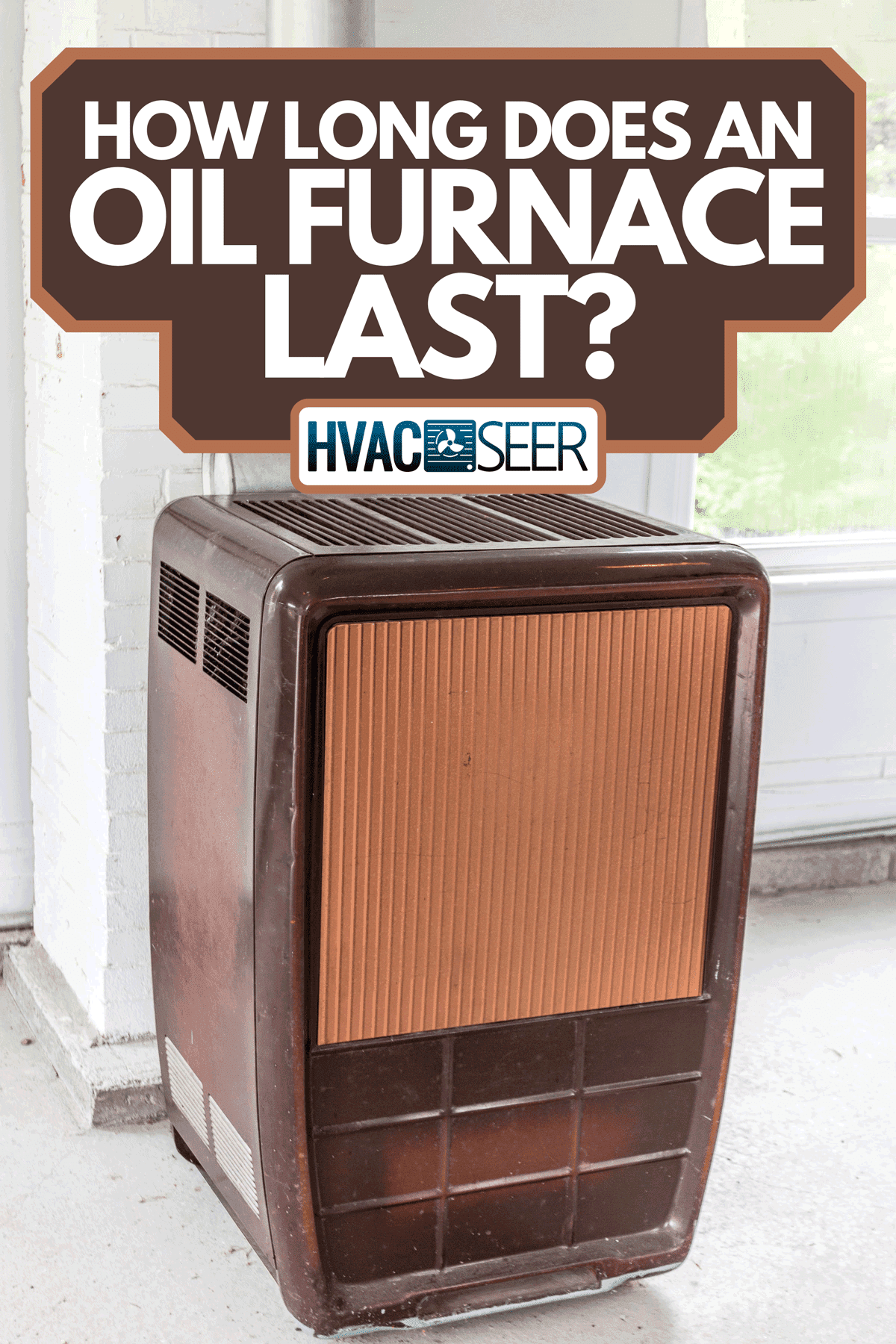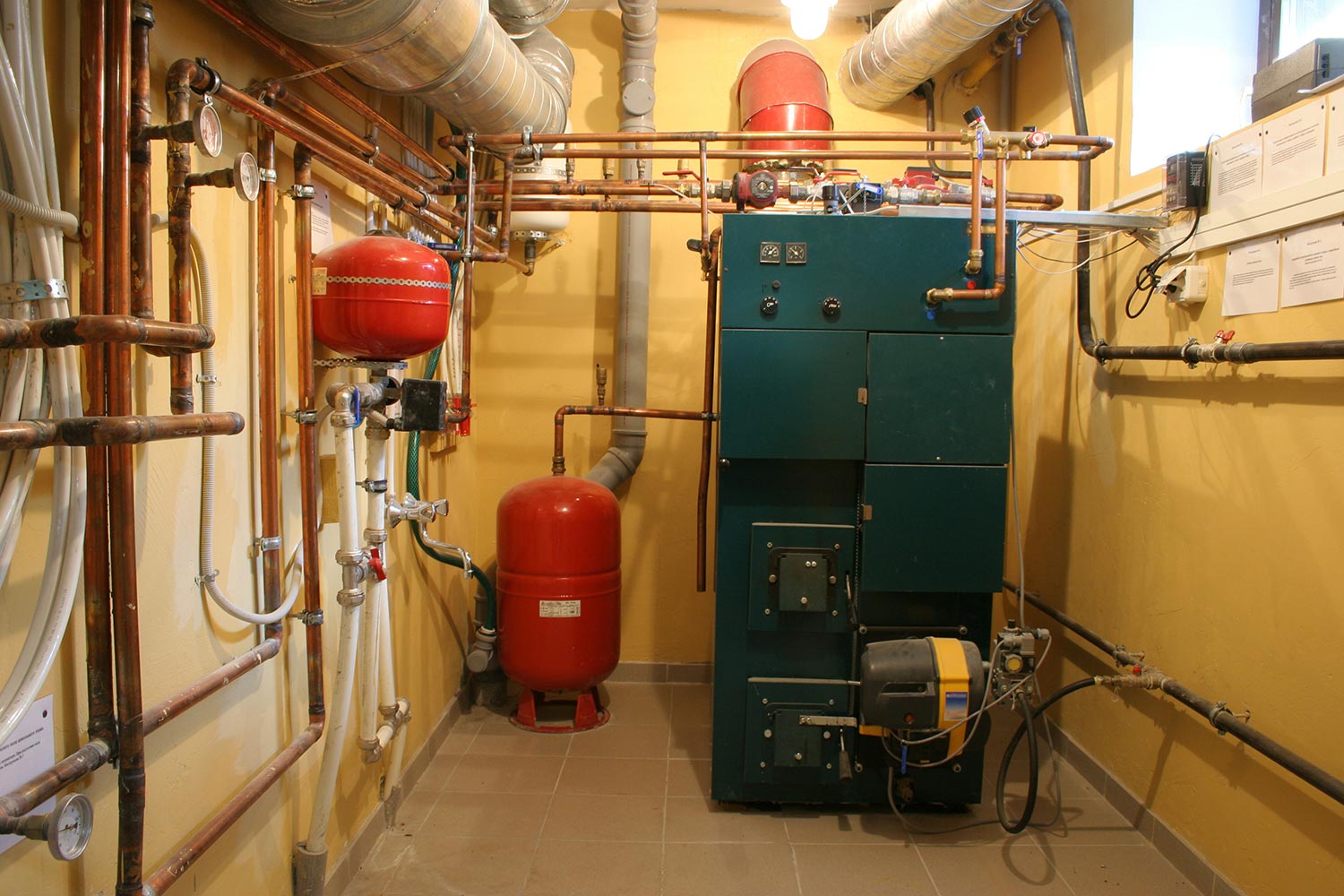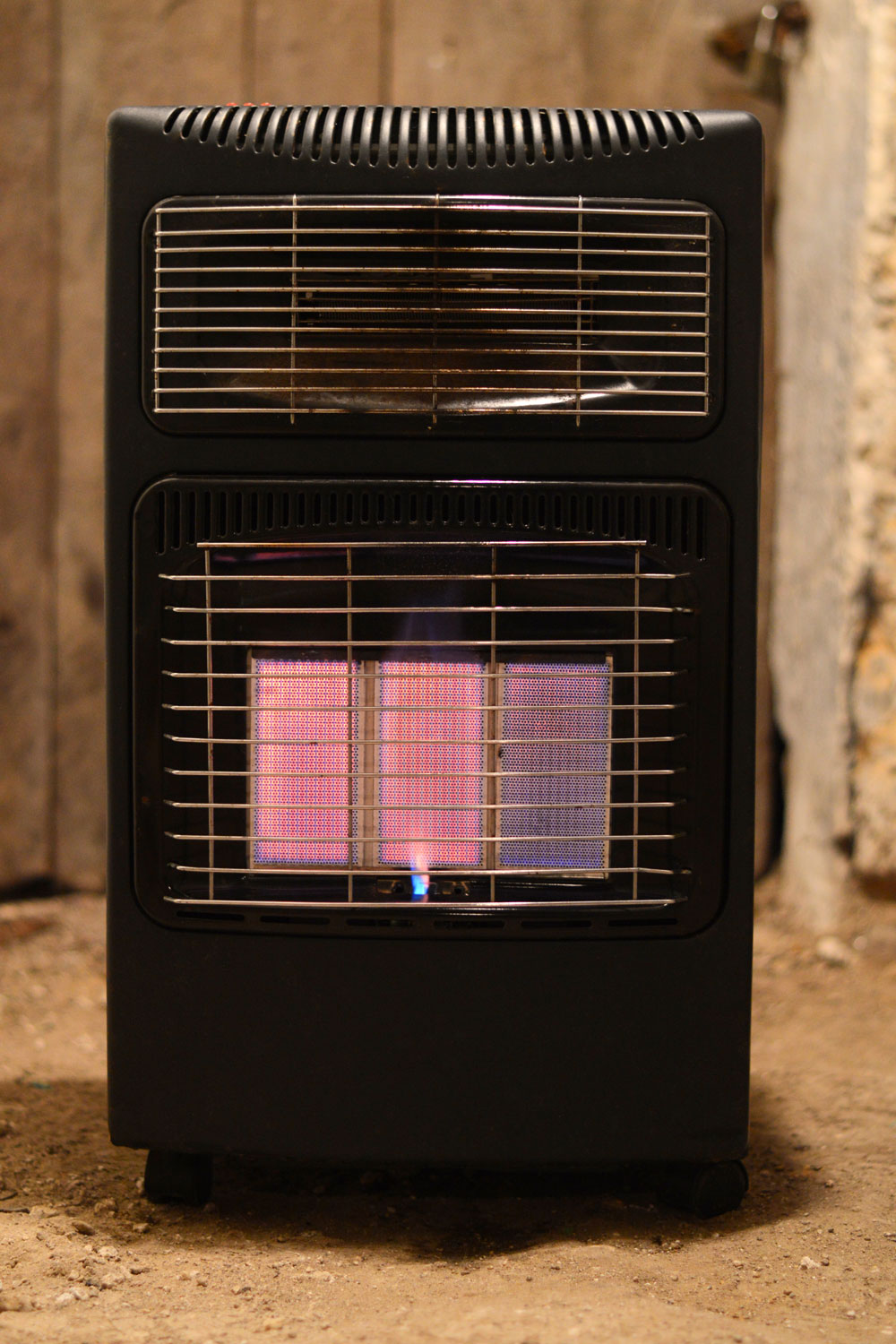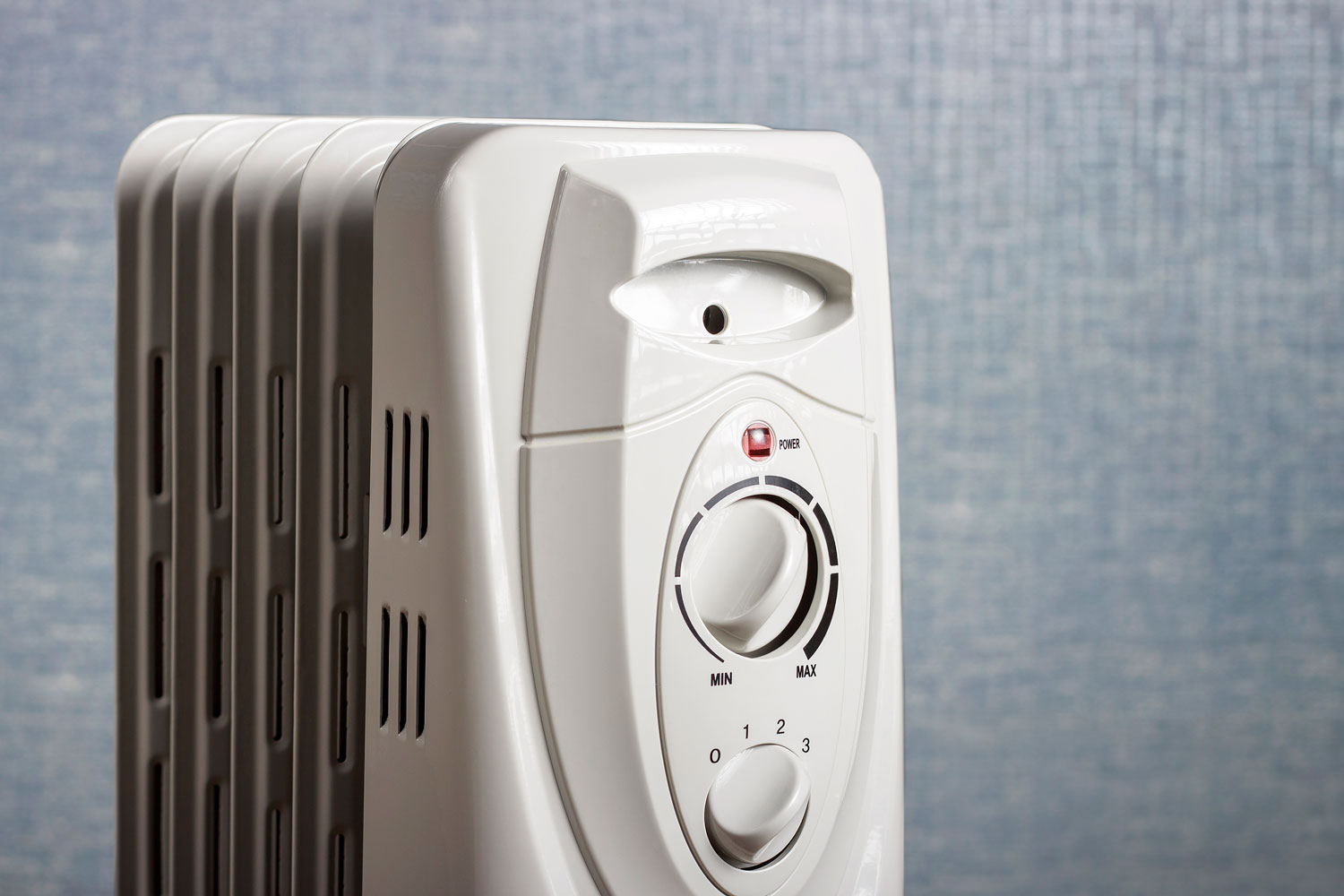If you have an oil furnace that you suspect is nearing the end of its lifespan and you want to be sure that your home has sufficient heating during the coming winter months, then you may be wondering just how long this boiler is expected to last. We've done the research to give you some guidance.
The oil furnace can be expected to last up to 15-20 years, with general maintenance and care. A shorter lifespan can be expected if general maintenance is neglected and arising issues are ignored.
So now you know the general length of time that your oil furnace should keep working smoothly, but you may have some other questions about this appliance, especially if you've found that you will need to begin looking for a replacement. Keep reading to learn more.

How An Oil Furnace Works
The oil furnace has been a staple in domestic heating for over a century. Still, as it has begun competing with gas, electric, and solar heating, it's fallen out of popularity. The truth is, most of us have no idea about its origins or how it works, but it's essential to have a working knowledge about these appliances if you own or are thinking about purchasing one.
The Invention
The oil furnace has been in use since the 1920s, brought into existence alongside Alice Parker's invention of the gas furnace. Before this time, homes were heated by wood fireplaces.
The fireplaces had to be constantly maintained for warmth, and they had to be in each room to provide heat throughout the home. The oil-fired furnace aided in remedying that problem, providing heat to each room of the house from one central location and easily being controlled and maintained.
The Mechanics
The oil furnace is composed of two main parts - the furnace and the oil tank. These are side by side. When the thermostat recognizes that the temperature in the home is below what is desired, it will signal to the furnace, which will then begin its process of heating the home.
The furnace will use a fuel pump to pull oil from the tank to the unit through a delivery line. Then the oil will be run through a filter and then placed into the burner chamber. The oil is then misted onto the burner.
In the meantime, cool air is pulled from the home to the furnace. The oil is used to heat the burner chamber to a high temperature, and the cool air passes over this chamber before it is forced throughout the ventilation system to every room in the house. This continues until the home reaches the desired temperature.
Are Oil Furnaces Obsolete?
The gas-fired furnace is the most popular heat source for homes in the United States, but oil furnaces are certainly not obsolete.
In fact, in the North-Eastern portion of the United States, a very cool region, this type of furnace is still a sought-after option.
Is Owning An Oil Furnace Worth It?
While an oil-fired heating system is a viable option, you may be wondering if it's what's best for your home and your family. For any responsible homeowner, it's a natural question. There are both advantages and disadvantages to owning an oil furnace.
Lower Purchase And Installation

The cost of an oil furnace unit is less than its gas counterpart, and the cost of installation is less. In comparison, the oil furnace has a less complex system of moving parts, so this may be due to that difference.
Fluctuating Oil Prices

While the oil furnace will cost less upfront, the cost of fuel for this boiler may often be more than natural gas. Oil is often imported into the United States, and the prices will fluctuate. This is something to consider as you move forward. Will you be able to sustain your heat if the cost of fuel rises?
More Efficient Heating
The most significant advantage of the oil furnace is its efficiency as a heating system. It is a popular choice for those who live in cold climates because it reaches and maintains higher temperatures than gas furnaces and thus will heat a home quicker and more evenly.
Size Of The Furnace
Oil furnaces include both the main unit and an oil tank. Because of this, the boiler needs a larger area to be installed than that of a gas or electric furnace.
Easier But Costly Maintenance
Oil furnaces burn more cleanly than gas furnaces. Because of this, less maintenance is required of the owner to keep the appliance running smoothly.
However, you will have to pay for oil deliveries, oil changes, and oil filter changes from a professional. That is unless you are equipped and willing to do all these things yourself, in which case the maintenance will be more difficult than that of a gas or electric furnace.
Check out this kerosene heating fuel on Amazon.
Accessible For Remote And Rural Homes
If your home is located in a remote or rural area, you may have found that local utilities are not easily accessible, including natural gas. An oil furnace may be a good option for you as it does not require any external hookups for fuel.
Are New Oil Furnaces More Efficient?
If you are replacing an oil furnace that is over ten years old, you can expect that the newer unit will be more efficient than the older one. Some even have 30% higher efficiency ratings. These days, oil furnaces range between 80-90% in AFUE (Annual Fuel Utilization Efficiency) ratings.
How Much Does It Cost To Heat A House With Oil?
The annual cost of heating a house with oil is between $.52-$1.09 per square foot for those who order oil as needed. For those who have the fuel on auto-delivery, the cost is between $.64-$1.32 per square foot. This is more than twice the cost of heating a home with a gas furnace.
To give you a more concrete idea, a home that is 1500 square feet will cost a homeowner between $785-$1630 per year to heat their home with oil if they choose to order the fuel as needed. However, if they have the fuel auto-delivered, the cost will be anywhere from $957-$1986 per year.
Installing And Using An Oil Furnace
If you've decided that an oil furnace is right for you, you may have some incidental questions about installing and using this appliance. We've answered some of the most common of these for you.
How Much Does It Cost To Replace An Oil Furnace?

The minimum cost of replacing an oil furnace is $2500, while the maximum cost is $13,000. The cost of replacing your furnace will most likely reside at the lower end of this range, though. The average for most homeowners is around $4000.
This price includes the new unit, the installation labor, and the permits and inspection costs. Do your due diligence to ensure that you purchase an affordable furnace and find an honest and seasoned professional to install the furnace. You will most likely end around the average range.
How Do You Maintain An Oil Furnace?
A homeowner's responsibilities in maintaining an oil furnace are few and mainly involve paying close attention to the furnace and promptly addressing any issues. If you notice any soot or smoke around your furnace or hear unusual sounds, you should have the unit serviced quickly.
Besides that, all a homeowner must do is routinely change the air filter and schedule an annual professional service. This professional maintenance will include cleaning the unit, an oil change, and changing the oil filter.
What Temperature Should My Oil Furnace Be Set At?

Unbeknownst to many, the oil furnace has two temperature dials on the unit, one for water heating and one for home heating. You will want to adjust the radiator setting to 75 degrees Celsius or 167 degrees Fahrenheit for home heating. This is the optimal setting for heating any size house.
In Conclusion
Whether you are anticipating a replacement for your existing oil furnace or trying to decide whether this heating system is best for you, it's helpful to know how long you can expect a unit to last.
On average, these boilers last between 15-20 years. That is, if the unit receives regular maintenance from the homeowner and service from a professional.

